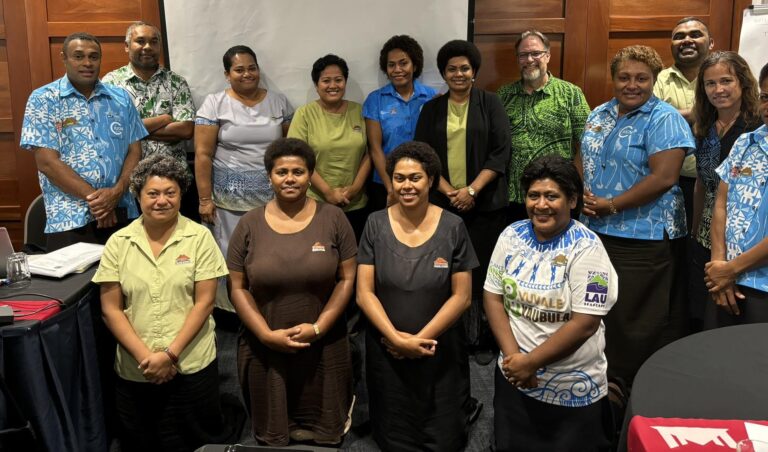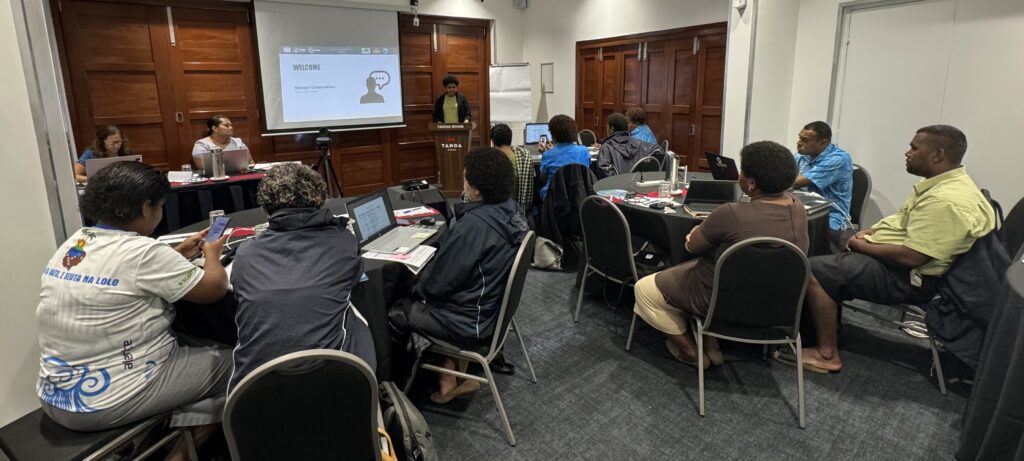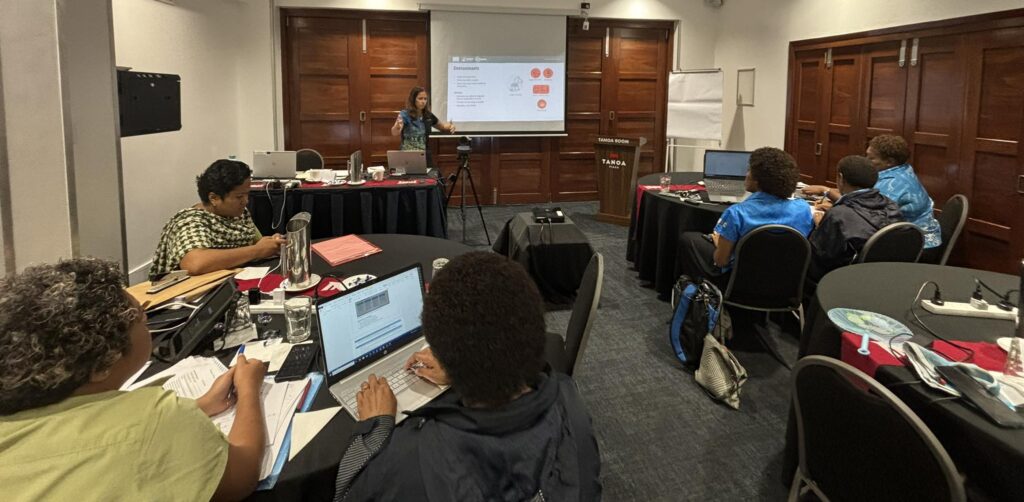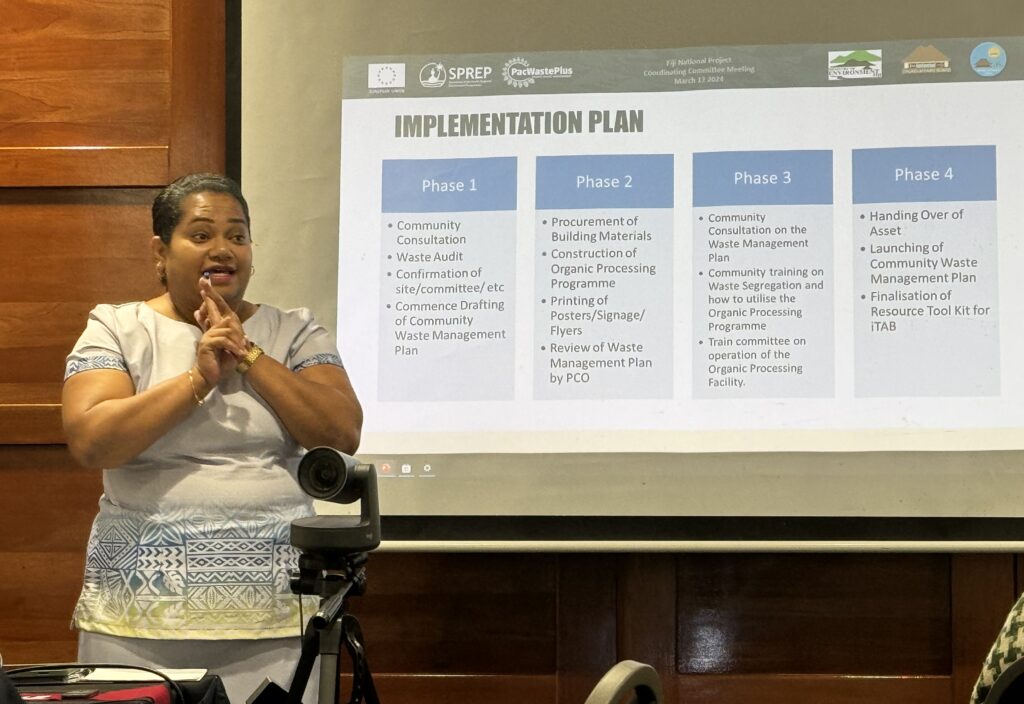News - Mar 29, 2024 Provincial Conservation Officers in Fiji trained on Organic Waste Processing & Monitoring of Composting Stations

Conservation Officers from 10 Provinces in Fiji received training on Organic Waste Processing, and Monitoring of Composting facilities, as part of ongoing capacity building on waste management. Training was provided by the Secretariat of the Pacific Regional Environment Programme through the EU-funded PacWastePlus Programme as part of a country mission conducted in March 2024.
The Organic Processing training has empowered Provincial Conservation Officers to design suitable composting projects for local villages and troubleshoot composting operations. The Manager for the Conservation Division of the iTaukei Affairs Board opened the training highlighting that “waste management is aligned to one of the pillars of the iTaukei Affairs Board on sustainable use of the environment.”

The impact of waste and pollution is taking its toll on the health of communities, degrading natural ecosystems, threatening food security, impeding resilience to climate change, and adversely impacting the social and economic development of countries in the region. The PacWastePlus programme assists government staff to combat this by enhancing existing activities and building capacity and sustainability in waste management practices.
Recent waste audits identified that more than 50% of Fiji’s waste is organic waste, which when managed improperly can increase greenhouse gas generation and pollute the environment. SPREP has partnered with Fiji’s Ministry of Environment and Climate Change and the iTaukei Affairs Board Conservation Division to design and pilot an organic processing programme in 25 villages across nine provinces.

Composting will enrich soil quality, improve crop yield, increase soil water retention, enhance food security, and increase climate resilience for local communities, all whilst reducing a source of pollution from improper waste management.
The training has resourced Provincial Conservation Officers so they can now design and implement similar projects in other villages across the fourteen provinces in Fiji that are currently overwhelmed with waste management issues in the absence of garbage collection services.


